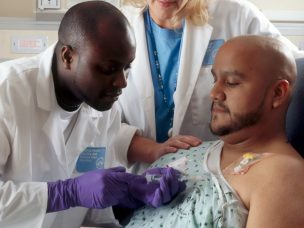Decline in trial launches could have long-term negative impact, authors say
The COVID-19 pandemic was associated with a 60 percent decrease in the number of launches of oncology clinical trials of drugs and biologic therapies, according to a research letter published online Jan. 27 in JAMA Network Open.
Elizabeth B. Lamont, M.D., from Acorn AI, by Medidata, a Dassault Systèmes company, in Boston, and colleagues evaluated the association between the pandemic and clinical cancer research and development by studying the initiation of oncology clinical trials over time. The analysis used operational clinical trial data from the Medidata Enterprise Data Store to aggregate all phase 1 through 4 oncology trials of drugs or biological agents that opened for patient accrual (launched) during the eight consecutive months of October through May over five successive years, with January through May 2020 defined as the pandemic period.
The researchers identified 1,440 oncology-directed trials of drugs or biological agents that launched in 91 countries. In each of the five sequential eight-month launch periods, the distribution of trials was: 229, 304, 340, 376, and 191 trials, respectively. There was a 60 percent decrease in oncology trial launches during the pandemic period (incidence rate ratio, 0.40) versus the prepandemic period, with constant trial launches in each of the five observation periods.
“The COVID-19 pandemic may be associated with longer term indirect effects on population morbidity and mortality through pathways such as arrested drug development,” the authors write.










